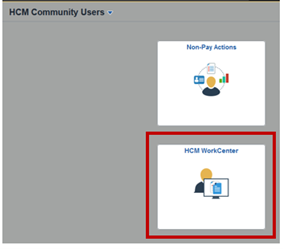Act fast to prevent overpayments before they happen
Payroll overpayments can cause prolonged stress and hassle for affected employees – and payroll liaisons.
Overpayments can’t always be predicted, but with proactive measures and quick action, payroll professionals can identify overpayments before they’re issued and correct the error before the payment hits the employee’s account.
Step 1: Run payroll registers in a timely manner
The payroll register is available following each payroll processing, and payroll liaisons should run and review each pay period’s register the day it becomes available to catch any pending overpayments.
- Payroll Register (CUES_HCM_PAYROLL_REGISTER) query returns paycheck information and an earnings breakdown by pay period end (PPE).
- Payroll Register Account Detail (CUES_HCM_PAYROLL_REGISTER_DTL) query returns paycheck information and an earnings breakdown with accounting details by pay period end.
- Payroll Register Summary (CUES_HCM_PAYROLL_REGISTER_SUM) query returns paycheck information by pay period end with no earnings breakdown.
Access the queries in HCM WorkCenter here:
To see all available queries, click on "Click here for ALL."
Keep the payroll calendar bookmarked and set reminders for yourself to run the payroll register on the days they post. If you have employees on monthly and biweekly payroll schedules, be sure to set reminders for both.
Step 2: Stop or pay pull to avoid errors
By acting in a timely manner, it’s possible to pull or stop pay before it posts to the employee’s account. A request to pull or stop pay must be issued before the pull deadline (also listed in the payroll calendar for each relevant pay period). Pay processed in an off-cycle payroll cannot be pulled. The sooner you issue a pay pull the more time you allow to fix the issue and, if needed, reissue pay.
This process is outlined on the Correct Pay page on the HCM website. This page also provides guidance on what conditions qualify for a pay pull and related details on reissuing pay, multiple pay records, late pay, deduction errors and more.
By reviewing the payroll register as soon as it becomes available and acting quickly pull pay in the event of an overpayment, you can prevent complications and stress for your department and the affected employees.








Add new comment